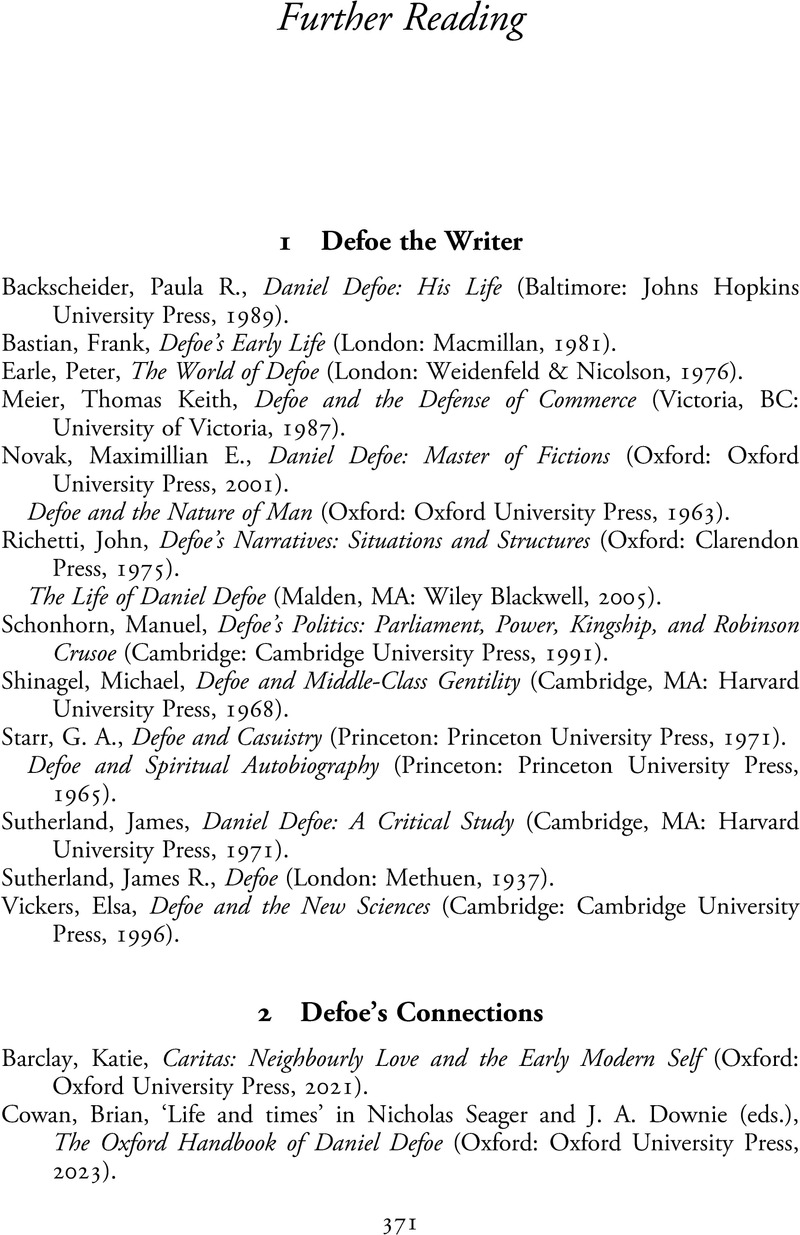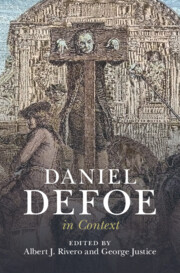Book contents
- Daniel Defoe in Context
- Daniel Defoe in Context
- Copyright page
- Contents
- Illustrations
- Notes on Contributors
- Preface
- Acknowledgements
- Chronology
- Part I Life and Works
- Part II Literary Context
- Part III Authorship and Copyright
- Part IV The Monarchy and Parliament
- Part V Social Structures and Social Life
- Part VI Critical Fortunes and Literary Afterlife
- Further Reading
- Index
- References
Further Reading
Published online by Cambridge University Press: 27 April 2023
- Daniel Defoe in Context
- Daniel Defoe in Context
- Copyright page
- Contents
- Illustrations
- Notes on Contributors
- Preface
- Acknowledgements
- Chronology
- Part I Life and Works
- Part II Literary Context
- Part III Authorship and Copyright
- Part IV The Monarchy and Parliament
- Part V Social Structures and Social Life
- Part VI Critical Fortunes and Literary Afterlife
- Further Reading
- Index
- References
Summary

- Type
- Chapter
- Information
- Daniel Defoe in Context , pp. 371 - 397Publisher: Cambridge University PressPrint publication year: 2023



